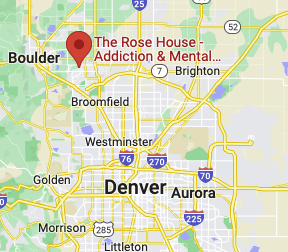In addiction and mental health care, treatment centers for dual diagnosis represent a critical resource for individuals struggling with co-occurring disorders. Recent data from the Substance Abuse and Mental Health Services Administration (SAMHSA) reveals that approximately 9.2 million adults in the United States experience both mental health disorders and substance use disorders simultaneously. Despite this prevalence, only about 12% of these individuals receive integrated treatment that addresses both conditions concurrently.
At The Rose House, we’ve observed firsthand how the lack of specialized care creates significant barriers to recovery. Our clinical team has documented that when women receive fragmented treatment—addressing either substance abuse or mental health in isolation—recovery outcomes diminish dramatically. The interconnected nature of these conditions demands a comprehensive approach that traditional single-focus treatment options simply cannot provide.
Current research from the National Institute on Drug Abuse underscores this reality, showing that integrated treatment models yield substantially higher rates of sustained recovery compared to sequential or parallel treatment approaches. This evidence has fundamentally shaped our treatment philosophy and methodologies at The Rose House, where we’ve pioneered holistic healing protocols specifically designed for women navigating the complex journey of dual diagnosis recovery.
Understanding Dual Diagnosis and Its Challenges

Dual diagnosis refers to the co-occurrence of mental health disorders and substance use disorders. This condition affects millions of Americans, creating unique challenges that require specialized and integrated approaches. Individuals with dual diagnosis often face unique challenges that single-diagnosis patients might not encounter. At The Rose House, our clinical experts recognize that these co-occurring disorders often interact in ways that intensify both conditions, creating a cycle that’s difficult to break without targeted intervention.
Common mental health diagnoses that frequently co-occur with substance abuse include:
- Anxiety disorders
- Depression
- Bipolar disorder
- Post-traumatic stress disorder
- Borderline personality disorder
- Schizophrenia
The relationship between these conditions is often bidirectional. Some individuals develop substance abuse problems while attempting to self-medicate underlying mental health symptoms. Many individuals with dual diagnosis self-medicate as a way of coping with their mental health symptoms. Others find that prolonged drug and alcohol addiction triggers or worsens psychiatric symptoms. Regardless of which developed first, our clinical team understands that effective treatment must address both simultaneously.
The Integrated Treatment Imperative
Traditional treatment models that address mental health and substance abuse separately often fail to recognize how deeply intertwined these conditions are. Our admissions specialists frequently encounter women who have cycled through multiple dual diagnosis programs without lasting results because their substance abuse problem and mental health issues was not properly identified or addressed.
The evidence is clear: integrated treatment that simultaneously addresses both mental illness and substance use disorder significantly improves outcomes. This approach requires specialized expertise, comprehensive assessment protocols, and treatment environments designed to support the needs of individuals with dual diagnosis.
The Rose House Approach to Dual Diagnosis Treatment

At The Rose House, we’ve developed a comprehensive dual diagnosis treatment program that addresses the full spectrum of needs for women with co-occurring disorders. Our approach begins with a thorough assessment that examines both mental health conditions and substance abuse patterns, allowing our treatment team to develop personalized treatment plans that address the unique challenges each woman faces.
Comprehensive Assessment Process
Every woman who enters our dual diagnosis treatment center undergoes a multifaceted evaluation process that includes: Comprehensive assessments are essential to accurately diagnose co-occurring disorders. This ensures that each individual’s unique needs are identified and addressed effectively as needed.
- Clinical interviews with addiction specialists
- Psychological testing and evaluation
- Medical assessment to identify physiological impacts of substance use
- Trauma screening
- Family history examination
- Substance use pattern analysis
This detailed assessment serves as the foundation for creating personalized treatment plans that address both substance use disorder and mental health disorders simultaneously.
Evidence-Based Therapeutic Interventions
Our dual diagnosis treatment programs incorporate multiple evidence-based therapeutic modalities designed to address both mental health issues and substance abuse concurrently. These include but are not limited to:
Dialectical Behavior Therapy (DBT)
DBT has proven particularly effective for individuals with dual diagnosis, especially those struggling with emotion regulation, interpersonal difficulties, and self-destructive behaviors. Our clinical team has specialized training in DBT techniques, which help women develop critical coping skills to manage mental health symptoms without resorting to substance use.
Cognitive Behavioral Therapy (CBT)
CBT helps identify and modify negative thought patterns that contribute to both mental health conditions and substance abuse. Through this therapeutic approach, women learn to recognize triggers, develop healthy coping mechanisms, and create sustainable strategies for long-term recovery.
Medication-Assisted Treatment
For some women, medication-assisted treatment plays an essential role in the recovery process. Our psychiatrists carefully evaluate each client to determine if medications would benefit their treatment journey, providing support for withdrawal symptoms, cravings, or psychiatric symptoms as appropriate.
Structured and Immersive Environment
Our residential treatment setting provides the structured and immersive environment necessary to properly handle co-occurring disorders. This setting allows for:
- Round-the-clock support from trained professionals
- Removal from environmental triggers
- Consistent implementation of therapeutic interventions
- Development of healthy routines and habits
- Safe space to practice new coping skills
- Peer support and community building
This environment proves particularly beneficial for women in the early stages of recovery, when the risk of relapse is highest and the development of new skills requires intensive support.
Holistic Approach to Healing and Recovery

At The Rose House, we recognize that effective dual diagnosis treatment extends beyond addressing the immediate symptoms of mental health disorders and substance use disorder. True healing requires a holistic approach that nurtures the whole person—mind, body, and spirit.
Holistic Wellness Practices
To treat dual diagnosis, The Rose House incorporates a variety of holistic therapies that complement an individuals treatment plan:
- Mindfulness and meditation practices
- Yoga and movement therapy
- Nutritional counseling and education
- Art and creative expression therapy
- Outdoor therapeutic activities
- Sleep hygiene and physical wellness support
Holistic dual diagnosis treatment centers integrate traditional therapeutic methods with alternative therapies such as yoga, mindfulness, and equine therapy.
These holistic therapies provide women with additional tools for managing stress, emotional regulation, and building resilience—all critical components of sustainable recovery. Holistic therapies contribute to comprehensive care by emphasizing the importance of nutritional wellness, exercise, and holistic healing in recovery.
Building Community and Support Networks
Recovery doesn’t occur in isolation. Effective treatment emphasizes the development of the whole person with healthy support networks both during and after intensive care. Through group therapy, support groups, and community-building activities, women develop connections that sustain them throughout the recovery process.
What Sets The Rose House Apart

While many treatment centers claim to address dual diagnosis, few provide the comprehensive, gender-specific care that we offer at The Rose House. Several key factors differentiate our approach:
Women-Specific Programming
Our dual diagnosis treatment programs are specifically designed to address the unique challenges women face when dealing with co-occurring disorders. Research consistently shows that women often develop substance use disorders and experience mental health symptoms differently than men. Our gender-specific approach acknowledges these differences and creates treatment protocols tailored to women’s needs.
Seamless Continuum of Care
Recovery from dual diagnosis is a journey, not a destination. Our treatment center offers a complete continuum of care, from assisting with medical detox through residential treatment and outpatient care. This seamless transition between levels of care ensures that women receive the appropriate intensity of treatment throughout their recovery journey.
Family Involvement and Healing
Mental health issues and substance abuse affect not just the individual but their entire family system. Our dual diagnosis programs incorporate family therapy and education, helping to heal relationships damaged by addiction and mental illness while building the support system necessary for long-term recovery.
Focus on Long-Term Recovery Skills
Our treatment team emphasizes the development of practical skills that support mental health and substance recovery and a fulfilling life after treatment. Through behavioral activation, life skills training, and relapse prevention planning, women develop the tools they need to maintain their recovery once they leave our care.
Outcomes and Success Stories
The effectiveness of our dual diagnosis treatment programs is reflected in our outcomes data and the transformative experiences of the women we serve. Our internal tracking shows that women who complete our dual diagnosis rehab program show significant improvements in both mental illness symptoms and substance use patterns, with many achieving sustained recovery and meaningful personal growth.
Our clinical team regularly documents improvements in:
- Reduction or elimination of substance use
- Decreased severity of mental health symptoms
- Improved emotional regulation
- Enhanced interpersonal relationships
- Increased employment and educational engagement
- Greater overall life satisfaction and well-being
These outcomes demonstrate that with the right treatment approach, women can recover from even the most challenging dual diagnosis conditions and build fulfilling lives in recovery.
Summary
A treatment center for dual diagnosis plays a vital role in addressing the needs of individuals struggling with co-occurring mental health and substance use disorders. At The Rose House, we’ve developed a comprehensive, women-specific approach that integrates evidence-based therapeutic interventions, holistic healing practices, and a supportive community environment.
Our dual diagnosis treatment center provides personalized treatment plans that address the unique challenges each woman faces, delivered by a multidisciplinary treatment team with specialized expertise in co-occurring disorders. Through our structured and immersive environment, women develop the skills and resilience necessary for sustainable recovery from both substance abuse and mental health conditions.
The journey of recovery from dual diagnosis is challenging but achievable with the right support. Our integrated treatment model provides women with the tools, strategies, and support networks they need to heal from co-occurring disorders and build lives of meaning, purpose, and joy.
Frequently Asked Questions
Dual diagnosis is the co-occurrence of at least one mental health disorder alongside a substance use disorder. This condition is remarkably common—according to the National Survey on Drug Use and Health, approximately 9.2 million adults in the United States experience co-occurring disorders annually. Nearly 50 percent of individuals with a substance use disorder also experience a mental health disorder. At The Rose House, our clinical team has observed that many women seeking treatment for substance abuse also struggle with underlying mental health conditions such as depression, anxiety, bipolar disorder, or post-traumatic stress disorder. The prevalence of dual diagnosis underscores the critical need for specialized treatment centers capable of addressing both conditions simultaneously.
Traditional addiction treatment programs often focus exclusively on substance abuse without adequately addressing underlying mental health issues. In contrast, dual diagnosis treatment centers like The Rose House implement integrated treatment approaches that simultaneously address both substance use disorders and mental health conditions. Our treatment process includes comprehensive psychiatric evaluation, medication management when appropriate, specialized therapeutic interventions like dialectical behavior therapy, and holistic approaches that support overall wellbeing. This integrated model prevents the common cycle where untreated mental health symptoms trigger substance use, or where ongoing substance abuse exacerbates mental health disorders.
At The Rose House, our dual diagnosis treatment programs address a wide range of mental health disorders that commonly co-occur with substance abuse. These include anxiety disorders, depression, bipolar disorder, post-traumatic stress disorder, borderline personality disorder, and attention-deficit/hyperactivity disorder (ADHD), to name a few. Our treatment team has extensive experience in addressing these conditions alongside substance use disorders. We recognize that each mental health diagnosis presents unique challenges in the recovery process and requires specialized therapeutic approaches within the integrated treatment model.
The duration of treatment at dual diagnosis treatment centers varies based on individual needs, the severity of both the substance use disorder and mental health conditions, and progress made during treatment. At The Rose House, our residential dual diagnosis treatment programs typically range from 30 to 90 days, followed by step-down care through our outpatient programs. Our clinical team conducts regular assessments throughout the treatment process to determine the appropriate length of stay for each woman. Research consistently shows that longer treatment durations correlate with better outcomes for individuals with co-occurring disorders, as they provide the time necessary to stabilize mental health symptoms while establishing solid recovery foundations.
Many insurance plans provide coverage for treatment at dual diagnosis treatment centers, though coverage levels vary significantly between providers and specific plans. At The Rose House, our admissions specialists work directly with each woman and her insurance provider to determine coverage options and maximize benefits for dual diagnosis treatment. We accept most major insurance plans and can help navigate the sometimes difficult process of securing coverage for integrated treatment. For women without adequate insurance coverage, we also provide guidance on alternative payment options to make dual diagnosis treatment accessible to those who need it.
Recovery from co-occurring disorders is an ongoing process that continues well beyond residential treatment. At The Rose House, we implement a comprehensive aftercare planning process for every woman completing our dual diagnosis treatment programs. This typically includes step-down care through our intensive outpatient programs, connections to community support groups specifically for individuals with co-occurring disorders, ongoing individual therapy with providers experienced in dual diagnosis, and medication management when appropriate. Our treatment team works closely with each woman to develop personalized aftercare plans that support long-term recovery and continued management of both substance use disorders and mental health conditions.
If you’ve struggled with both substance abuse and mental health symptoms, or if previous attempts at addiction treatment have been unsuccessful, a specialized dual diagnosis treatment center may be necessary. Signs that dual diagnosis treatment would be beneficial include using substances to manage emotional or psychological symptoms, experiencing mental health symptoms during periods of sobriety, or having been diagnosed with both conditions separately. At The Rose House, our admissions specialists provide thorough assessments to determine if our dual diagnosis treatment programs would be appropriate for your specific situation. We recommend reaching out for a confidential evaluation to discuss your unique circumstances and treatment needs.
Sources:
https://www.samhsa.gov/substance-use/treatment/co-occurring-disorders
https://www.samhsa.gov/data/sites/default/files/reports/rpt39443/2021NSDUHFFRRev010323.pdf
https://nida.nih.gov/research-topics/mental-health
https://nida.nih.gov/research-topics/co-occurring-disorders-health-conditions








